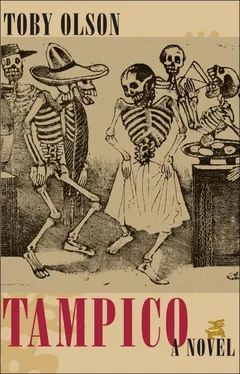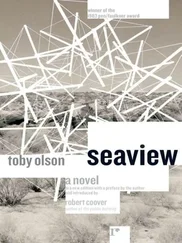I looked over at Carlos to get his eyes, but he was watching them, and then he spoke.
“In what way did you know him?”
“He was my doctor, our doctor.” James nodded toward Andy. “First at the free clinic, then privately.”
“We don’t have any money,” Andy said. “Not that kind.”
I wondered about their parents. They were in their mid-twenties only, but I knew not to ask.
“You’re wondering about our parents,” James said. “Andy’s have been okay and mine haven’t. But there’s no money there.”
“I was wondering more about Strickland and his money,” Carlos said.
“That was pretty clear,” said Charlie. “He seemed to have some. Inherited I think. He lived well, but not ostentatiously. He was always busy, with patients, fund-raisers and such.”
“Except when he split,” Andy said. “He’d disappear for a week. Then he’d be back in action.”
“I doubt there’s anything there,” Carlos said, and they both looked at him.
“Look,” I said. “Can you think of anyone who had it in for him? Who might have been after his money?”
“God, no!” said Andy. “He may have been a saint.”
“A martyr?” Carlos said.
“Paradise would know, if anyone would. He’d be the one to ask,” James said. “You can ask him. We can’t really get you beyond gossip.”
“Can you set it up?” I said. “A number? An introduction?”
“Sure,” Andy said. “You don’t need a number though. We can do it in person.”
“Where?” I said.
“Why, right here, of course! I know he’s in.” He looked over at Charlie. “Didn’t you tell them?”
“Didn’t quite get to it,” Charlie said.
“What are you talking about?” I asked.
“Come on,” James said.
He struggled up out of the chair, hands gripping the table’s edge. Andy had his cane, and he slipped it into his palm when he was standing. It had taken effort and he seemed unsteady. We had all risen, and we stood and watched him, his bird chest fluttering under his loose shirt as he sucked in air. His head hung down, his mouth open, and I could see the salmon-colored gums below his teeth. I thought he might fall down, and I reached for my handkerchief and dabbed my sweaty brow. Andy was ready at his shoulders, careful not to touch him. Then James settled into his breathing and in moments his hanging head came up and he was grinning, the skin pulled tight over the bones of his high cheeks. His fingers touched the table as he turned, and I could hear the shush of his sliding slippers. Then he shuffled toward the edge of the dance floor, Andy at his elbow, and we followed behind. They were playing “These Foolish Things,” Art Pepper in that mellow and toughened mood, just moments in the music before his death, longingly, but there finally.
We reached the crowded dance floor and the dancing couples turned and parted in their dancing and made way for us. I saw a man in the arms of another, his gaze upon us in guarded recognition for a moment, then lost back to the dancing as he turned away. I could smell cologne and sweat and that other scent, my own, as the dancing couples closed behind us and drifted away in slow spinning as we reached them.
“They’re all dead.” It was James or Andy up ahead, and I thought I heard dancers groaning in their dipping when they heard the words.
“He means the music,” Carlos said.
“A perverse choice, but the right one. We only play the dead on Fridays.”
It was Charlie behind me, and I could hear the echo of his daughter’s voice.
We came to the end of the bar and stood there in a cluster. The bartenders were busy, pulling taps and spraying soda into glasses. One lifted a mixer and shook it theatrically, then poured a margarita. Then he saw us, and he was smiling as he came down behind the bar toward us, then lifted a section of the slick wood surface and let us through. Charlie stayed behind, and I heard him ask for tonic and bitters. It was almost time for his last set.
We went through a narrow storage area to the right, cases of beer and liquor stacked to the ceiling on either side. At the end was a door, and Andy reached around James’s shoulder and pushed it open. It entered into a small room, not much bigger than a closet, light from a dim yellow bulb bathing another door, a heavy metal one, a few feet off. There were hooks on the walls of the room and white cotton robes and clothing hanging from them, and I stood and watched as Andy helped James into one of the robes, holding the shoulders up into points as a screen to guard him from our sight as he removed his shirt, then slipped his arms through the sleeves. Andy stepped ahead then to the heavy door and turned the handle and leaned his shoulder against the metal. It opened without sound, and he stood aside as James shuffled through and we followed in behind him.
We were standing in a chapel, on a stone floor over which tattered rugs had been laid. There was stone between the rugs’ frayed edges, rock worn smooth by the passage of years of feet, and the lines of grout where the stones joined were as clean as the stone and married to it, and there was a faint scent of wax in the air, and a variety of other scents — soap and isopropyl alcohol, musk over cleaning solvent, charcoal, and the sweetness of marijuana insinuated and moving through them, then drifting up into the high arching ceiling, where stained glass held the vague figures of saints and animals in various engagements.
I heard a faint cough, its echo close to my ear, and looked to the far end of the chapel where the altar had been. The elevated stage still held pews to its sides, those seats for minor clerics and altar boys, and a life-size crucifix hung on the back wall, the figure draped over in purple cloth, but evident in its contours. The cloth had slid from the fingers, and the white hands holding the spikes and the blood in the palms were vivid and it was hard to look away from that, down to where the men sat on the stage at a large wooden table in their white robes, playing cards. The one who had coughed held a handkerchief, and was bending away and coughing into it, and the three others held their cards still in the air and seemed frozen there as they waited. Their faces were as white as the robes were, and behind them, to the sides of the crucifix, high shelves had been constructed to hold white sheets and towels, and a white dog, a Saint Bernard, lay on the floor at the table’s edge, massive and panting and like a snowdrift. I saw his head come up, his red tongue and black eyes, and the men lowered their cards, their skull faces lifting and turning and looking down the chapel toward us as the music drifted in from the Key West. It was Coltrane now, faint strains, “The Shadow of Your Smile,” and I heard Andy grunting as he leaned against the heavy door, closing it behind us. Then the music was gone away, and I saw the other men, two dozen or more, sitting on stone benches and sarcophagi under archways along the chapel’s sides. Some were together and talking softly. Others sat alone, reading newspapers and books. I saw a man with earphones and a small cassette player. Another held a piece of wood and was whittling into a basket at his feet. They all wore the white robes, and each face was a skull or becoming one, and one was bald and his eyes were closed, and only when his head turned on his neck to look at us did I know he was still among the living.
“ Calacas a todas partes. “
It was Carlos, whispering, and when I turned to him and looked past him, then beyond the men, I saw the doors in the carved sections of wooden walls fitted into the stone wall at the chapel’s sides, entrances to those small votive chambers I didn’t know the names of. One across from us stood open, and I could see the edge of a bed, a table, and a vase holding cut flowers, limp roses, a dull dusty purple in the dim light.
Читать дальше












